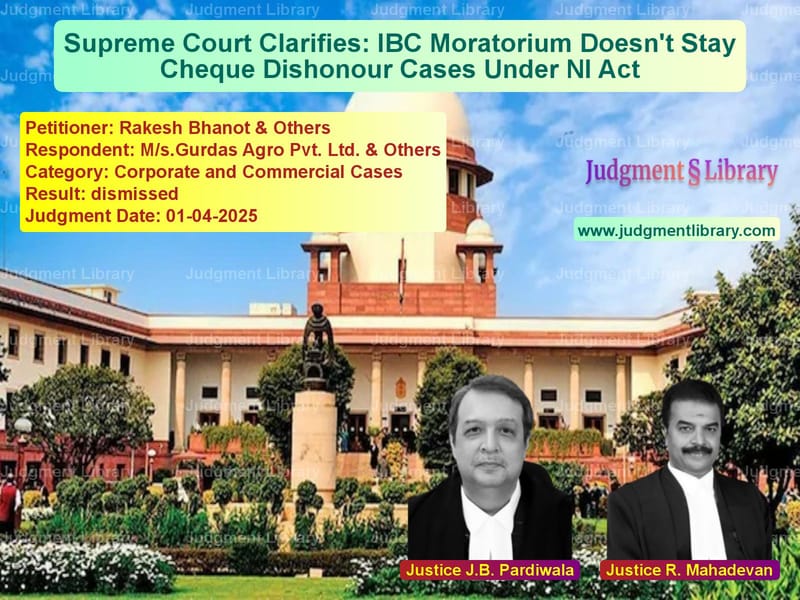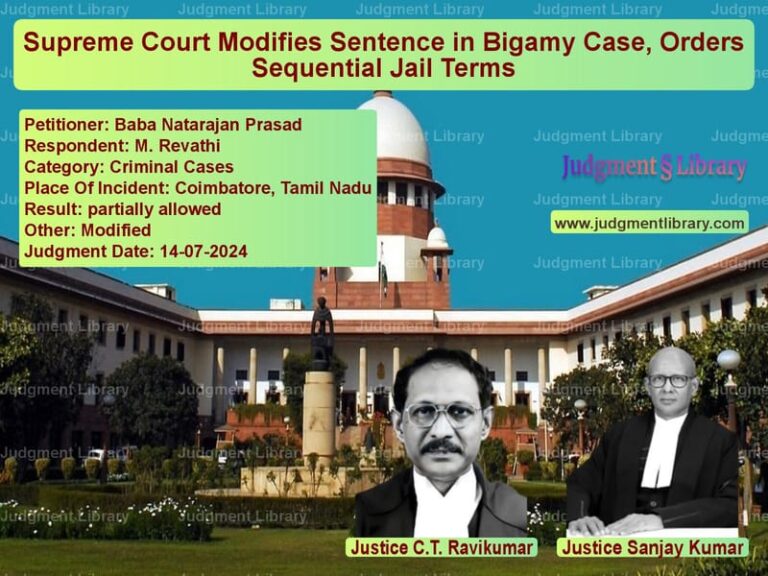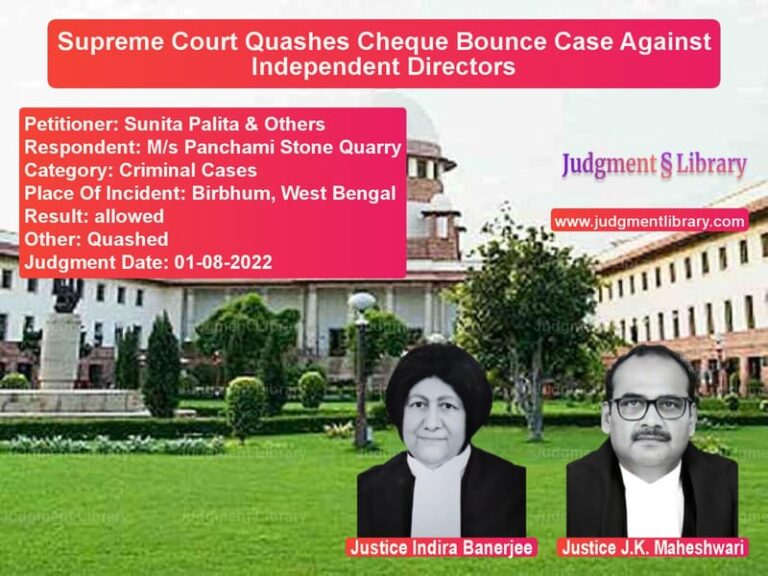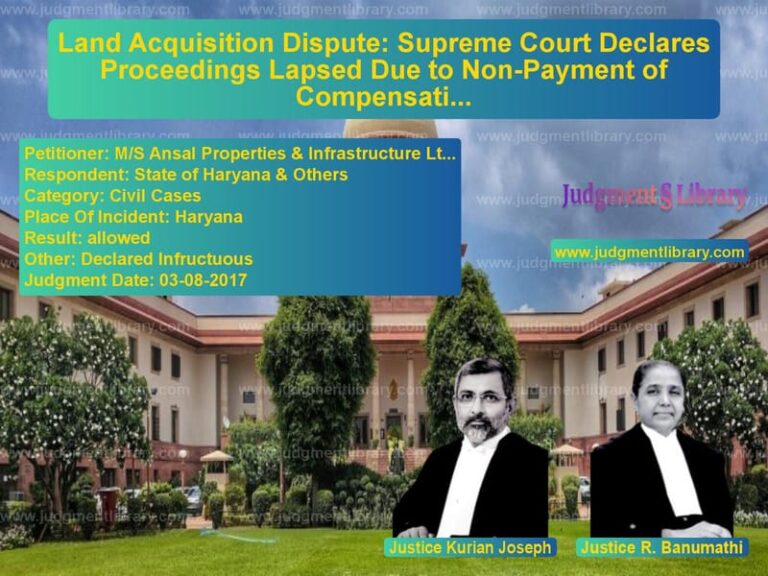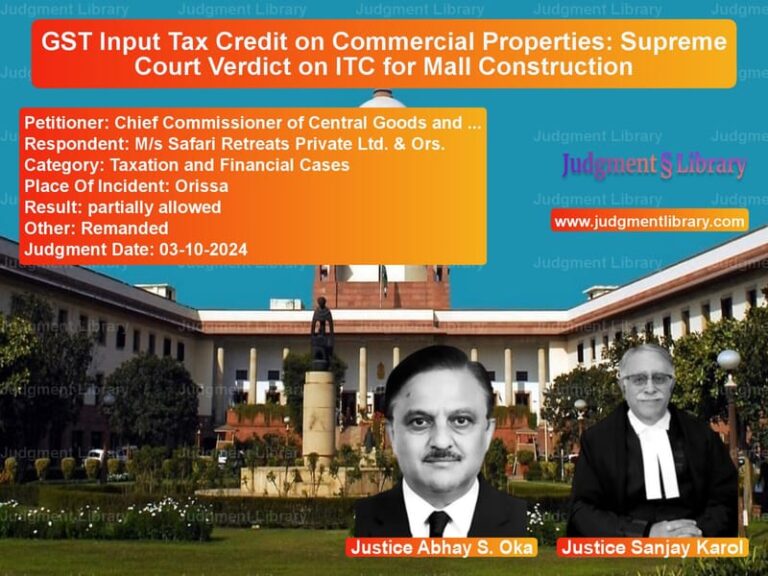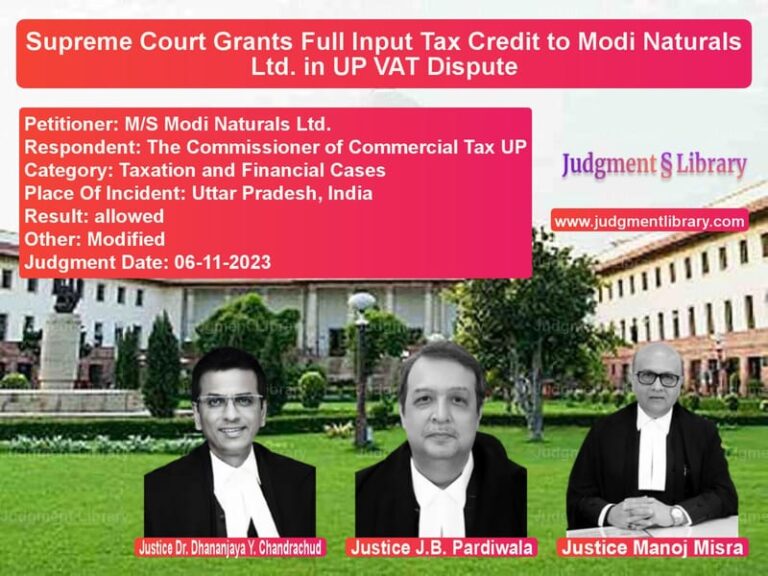Supreme Court Clarifies: IBC Moratorium Doesn’t Stay Cheque Dishonour Cases Under NI Act
In a landmark judgment delivered on April 1, 2025, the Supreme Court of India settled a crucial legal question regarding the interplay between the Insolvency and Bankruptcy Code (IBC) and the Negotiable Instruments Act (NI Act). The Court ruled that the moratorium provisions under IBC do not stay criminal proceedings under Section 138 of the NI Act for cheque dishonour, even when the accused has initiated personal insolvency proceedings.
Background of the Case
The case involved multiple appeals and a writ petition filed by various individuals who were facing prosecution under Section 138/141 of the NI Act for dishonour of cheques. These appellants/petitioners had initiated personal insolvency proceedings under Section 94 of IBC and sought stay of the criminal cases based on the interim moratorium under Section 96 IBC.
The key question before the Court was:
“Whether the proceedings initiated against the appellants / petitioners under Section 138 read with Section 141 of the N.I. Act, 1881 should be stayed in view of the interim moratorium under Section 96 IBC having come into effect upon the appellants / petitioners’ filing applications under Section 94 IBC.”
Arguments of the Appellants/Petitioners
The appellants/petitioners made several key arguments:
- There is a complete bar on continuation of NI Act proceedings due to pendency of insolvency proceedings under Section 96 IBC
- The legislative intent of IBC is to provide debtors a fair opportunity to reorganize their financial affairs without coercive creditor actions
- Section 101 IBC imposes an express bar on individuals from making payments, creating a dichotomy if they’re simultaneously prosecuted for not making payments
- The protection under Sections 96 and 101 IBC is greater than under Section 14 IBC
- IBC must prevail over NI Act due to its non-obstante clause in Section 238
They relied on judgments like State Bank of India v. V.Ramakrishnan and Dilip B. Jiwrajka vs. Union of India to support their contentions.
Arguments of the Respondents
The respondents countered these arguments by stating:
- IBC is meant to resolve financial distress, not shield individuals from criminal liability
- Interim moratorium under Section 96 IBC applies only to debts, not criminal proceedings
- Proceedings under Section 138 NI Act are distinct and operate independently of insolvency proceedings
- Reliance was placed on P.Mohanraj v. Shah Brothers Ispat Pvt. Ltd. and Narinder Garg v. Kotak Mahindra Bank Ltd.
- The 2020 Insolvency Law Committee Report clarified that moratorium under Part III IBC is limited to the debtor and its assets
Key Legal Provisions Considered
The Court examined several crucial provisions:
From IBC:
- Section 14: Moratorium provisions for corporate debtors
- Section 94: Application by debtor to initiate insolvency resolution process
- Section 96: Interim moratorium provisions
- Section 101: Moratorium provisions after admission of application
From NI Act:
- Section 138: Penal provisions for cheque dishonour
- Section 141: Liability of company directors/officers
Supreme Court’s Analysis
The Court made several crucial observations:
“The term ‘legal action or proceedings’ in Section 96(b)(i) and (ii) are followed by the term ‘in respect of any debt’. The term ‘legal action or proceedings’ would have to be understood to include such legal action or proceedings relating to recovery of debt… The purpose of interim moratorium contemplated under Section 96 is to be derived from the object of the act, which is not to stall the proceedings unrelated to the recovery of the debt.”
The Court distinguished between civil recovery proceedings (which get stayed) and criminal prosecutions (which continue):
“The acceptance of the resolution plan under Section 31 IBC or its implementation thereof will have no effect on the prosecution under Section 138 of the N.I. Act, 1881… The cause of action for prosecution under Section 138 of NI Act commences on the dishonor of the cheque and the failure to pay the amount unpaid because of dishonour.”
Key Precedents Relied Upon
The Court extensively referred to several landmark judgments:
- P.Mohanraj v. Shah Brothers Ispat Pvt. Ltd. (2021): Held that moratorium under Section 14 IBC applies only to corporate debtor, not natural persons under Section 141 NI Act
- Narinder Garg v. Kotak Mahindra Bank Ltd. (2022): Reiterated that moratorium doesn’t apply to natural persons
- Ajay Kumar Radheyshyam Goenka v. Tourism Finance Corpn. (2023): Established that approval of resolution plan doesn’t discharge directors’ liability
Court’s Decision
The Supreme Court ultimately held:
“For the foregoing discussion, the prayer of the appellants / petitioners to stay the prosecution under Section 138 of the N.I. Act, 1881, relying on the interim moratorium under Section 96 IBC, cannot be entertained. Therefore, the judgments / orders passed by the different High Courts affirming the orders of the trial court, which had rightly refused to stay the section 138 proceedings, need not be interfered with by us.”
The Court dismissed all appeals and the writ petition, clarifying that:
- Moratorium under IBC stays only civil recovery actions, not criminal prosecutions
- Personal liability under NI Act continues regardless of insolvency proceedings
- Object of Section 138 NI Act is to maintain trust in commercial transactions
- Allowing stay of criminal cases would undermine the deterrent effect of NI Act
Implications of the Judgment
This judgment has significant implications:
- Clarity on IBC-NI Act interface: Establishes clear distinction between civil and criminal proceedings
- Protection for creditors: Ensures creditors can continue criminal actions despite insolvency proceedings
- Deterrent value maintained: Preserves the deterrent effect of Section 138 NI Act
- Prevents misuse: Stops debtors from using IBC to avoid criminal liability
- Legal certainty: Resolves conflicting interpretations across High Courts
The judgment reinforces that while IBC provides a framework for debt resolution, it cannot be used as a shield against criminal liability arising from commercial transactions.
Petitioner Name: Rakesh Bhanot & Others.Respondent Name: M/s.Gurdas Agro Pvt. Ltd. & Others.Judgment By: Justice J.B. Pardiwala, Justice R. Mahadevan.Judgment Date: 01-04-2025.Result: dismissed.
Don’t miss out on the full details! Download the complete judgment in PDF format below and gain valuable insights instantly!
Download Judgment: rakesh-bhanot-&-othe-vs-ms.gurdas-agro-pvt.-supreme-court-of-india-judgment-dated-01-04-2025.pdf
Directly Download Judgment: Directly download this Judgment
See all petitions in Bankruptcy and Insolvency
See all petitions in Company Law
See all petitions in Cheque Dishonour Cases
See all petitions in Debt Recovery
See all petitions in Judgment by J.B. Pardiwala
See all petitions in Judgment by R. Mahadevan
See all petitions in dismissed
See all petitions in supreme court of India judgments April 2025
See all petitions in 2025 judgments
See all posts in Corporate and Commercial Cases Category
See all allowed petitions in Corporate and Commercial Cases Category
See all Dismissed petitions in Corporate and Commercial Cases Category
See all partially allowed petitions in Corporate and Commercial Cases Category

